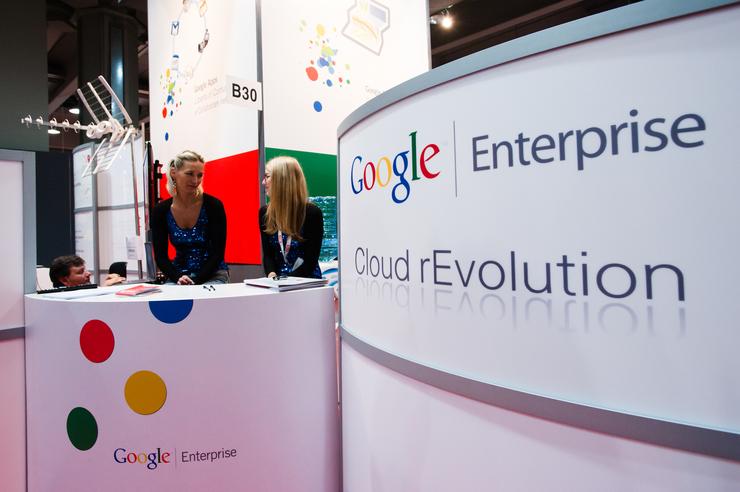
Google’s Cloud business, often cited as one of the top-three public Cloud vendors, is evolving quickly and aggressively to catch up to earlier-to-market competitors.
At Google Cloud Platform (GCP) NEXT 2016, the company messaged the value that its core competencies in security, data management and machine learning lend to its Cloud services.
Analysts believe the value in innovation, when paired with Google’s adaptive Cloud pricing model, elevates its price-to-performance ratio and is helping the tech giant increasingly appeal to the different needs and concerns of enterprise customers, expanding upon its earlier market traction among SMBs and application developers.
“Two generally disparate parts of Google’s portfolio of businesses, Google Cloud Platform and Google Apps for Work, are now aligned to drive adoption in the enterprise Cloud market,” says Meaghan McGrath, Research Analyst, Technology Business Research.
“The reorganisation and disaggregation of Google Inc. under new holding company Alphabet Inc. have enabled core Google businesses such as Apps, Cloud Platform, Search, Chrome and Android to shed the burden of more auxiliary investments such as Nest, Calico and Google Ventures, among others.”
McGrath believes the “knitting together” of Google Cloud Platform and Google Apps for Work culminated at the end of 2015 with the creation of a “cohesive Cloud unit” to be led by Cloud enterprise guru Diane Greene, who joined Google after it acquired her startup Bebop.
“The Cloud unit will strengthen each portfolio’s enterprise push while setting the stage for a unified Cloud go-to-market effort,” McGrath says.
Google Cloud Platform Portfolio
However, McGrath believes the GCP NEXT event was squarely focused on enhancements and capabilities of the development tools and infrastructure that make up the GCP portfolio.
As Google works to change the market perception of its Cloud products, TBR believes there is merit in keeping the portfolios clearly delineated, and only later in their maturity developing integration and extensibility capabilities.
During the event, Google educated customers, analysts and partners on the aggressive moves the company’s Cloud business is making to win market share in the competitive public Cloud market, specifically through enterprise appeal.
“The hiring of Greene was undeniably a move to help Google better appeal to enterprise customers, leveraging her expertise gained from founding and growing VMware,” McGrath adds.
Having been with Google for four months at the time of the GCP NEXT event, Greene stated during a keynote that she was “amazed at the level of innovation” within the company and felt she could be most helpful with sales and marketing tactics, saying Google is “all-in on what [it] can do for the enterprise.”
As McGrath explains, Greene has already begun to reform the enterprise go-to-market strategy of the Google Cloud business, focusing on enterprise data security.
At the event, Google executives and engineers highlighted innovative technologies and security layers that will help enterprises manage their Cloud environments and ensure their data is more secure than if it were stored on-premises and managed by Google internal security controls, as there are thousands of years of combined engineering personnel experience behind Google Cloud Platform.
Machine learning
As a point of differentiation from other Cloud platform vendors, Google is investing heavily in the development of machine-learning capabilities.




